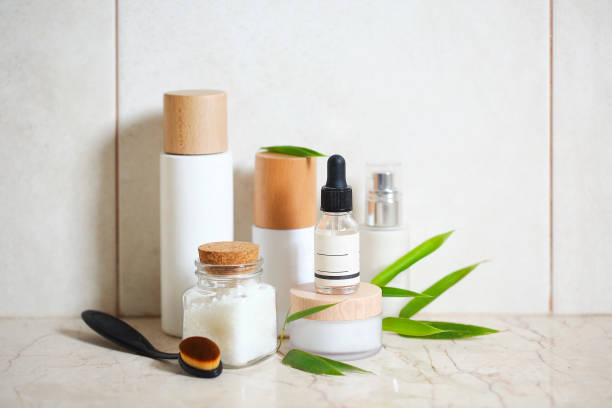
[dropcap]W[/dropcap]hen it comes to your skincare regime, avoiding acidic ingredients would seem like the most rational thing to do.
However, in a world where we find ourselves succumbing to internet sensational skin hacks (queue the DIY face mask we’ve all thrown our hand to), we should know better than to judge so quickly.
Skin acids have a myriad of beneficial qualities and are mostly known for their use as chemical exfoliators, meant to remove dead skin cells and leave your skin looking smoother and brighter.
This means that acids – no matter what type – will bring new skin cells to the surface. These vulnerable skin cells need to be protected from air pollutants and UV rays, so before you incorporate acids into your routine, make sure SPF follows suit.
There are two main types of acids found in skin care products that each have their respective benefits: alpha-hydroxy acids (AHAs) and beta-hydroxy acids (BHAs).
AHAs are water-soluble and they exfoliate by breaking down the outer layers of dead skin cells. AHAs are more suited towards dry to combination skin. BHAs are oil-soluble, meaning they can penetrate deeper through the oil produced by your skin and into the pores to unclog them, according to The Skin Nerd.
For oily and acne prone skin, salicylic acid will enhance your daily skin care routine. Salicylic acid works to penetrate into your pores and clear them of blockages such as excess oil and dead skin cells, which often leads to the family of blackheads arriving uninvited on your face. It also works as an anti-inflammatory, bringing down redness and irritation.
The Skin Nerd recommends scouting salicylic acids as an ingredient in your cleanser. Products such as IMAGE Clear Cell Clarifying Gel Cleanser and Mario Badescu Acne Facial Cleanser are perfect examples.
For those prone to dry skin, and dread the dehydrated version of their skin the winter initiates, hyaluronic acid will transform the skin to its former hydrated self.
Hyaluronic acid is most effective at bringing moisture to the surface of your skin, by drawing and holding water in (our skin is made up by 64 per cent water according to Forefront Dermatology).
Hyaluronic acid is so effective at locking moisture into your face, you most likely won’t need to use it in more than one product in your routine, according to Dr Kavita Mariwalla, founder of Mariwalla Dermatology.
Dr Mariwalla also added that hyaluronic acid will make your skin appear younger and more dewy, because of its ability to improve skin elasticity.
This acid is most effective in serums and moisturisers, with Pestle and Mortar Pure Hyaluronic Serum soaring in good reviews. The Ordinary Hyaluronic Acid 2% + B5 is equally successful on the market with their highly affordable price range.
For those with dull skin, citric acid will give you the brightening lift you are looking for. It exfoliates the skin and helps to unclog pores, which allows new skin cells to surface, giving you brighter, smoother skin, according to L’Oréal.
Citric acid works effectively in cleansers, with Irish brand Kinvara leading the way with their Absolute Cleansing Face Oil.
Keeping yourself up to date with the latest skincare brands and the constant churn of new trends can seem relentless. You have no sooner become accustomed to the newest “holy-grail” before something new replaces it.
Yet, no matter what trends the beauty industry turns its attention to, skin acids will remain firmly rooted as the golden ingredient with timeless benefits.
Author: Trudy Feenane
Image Credit: iStock



